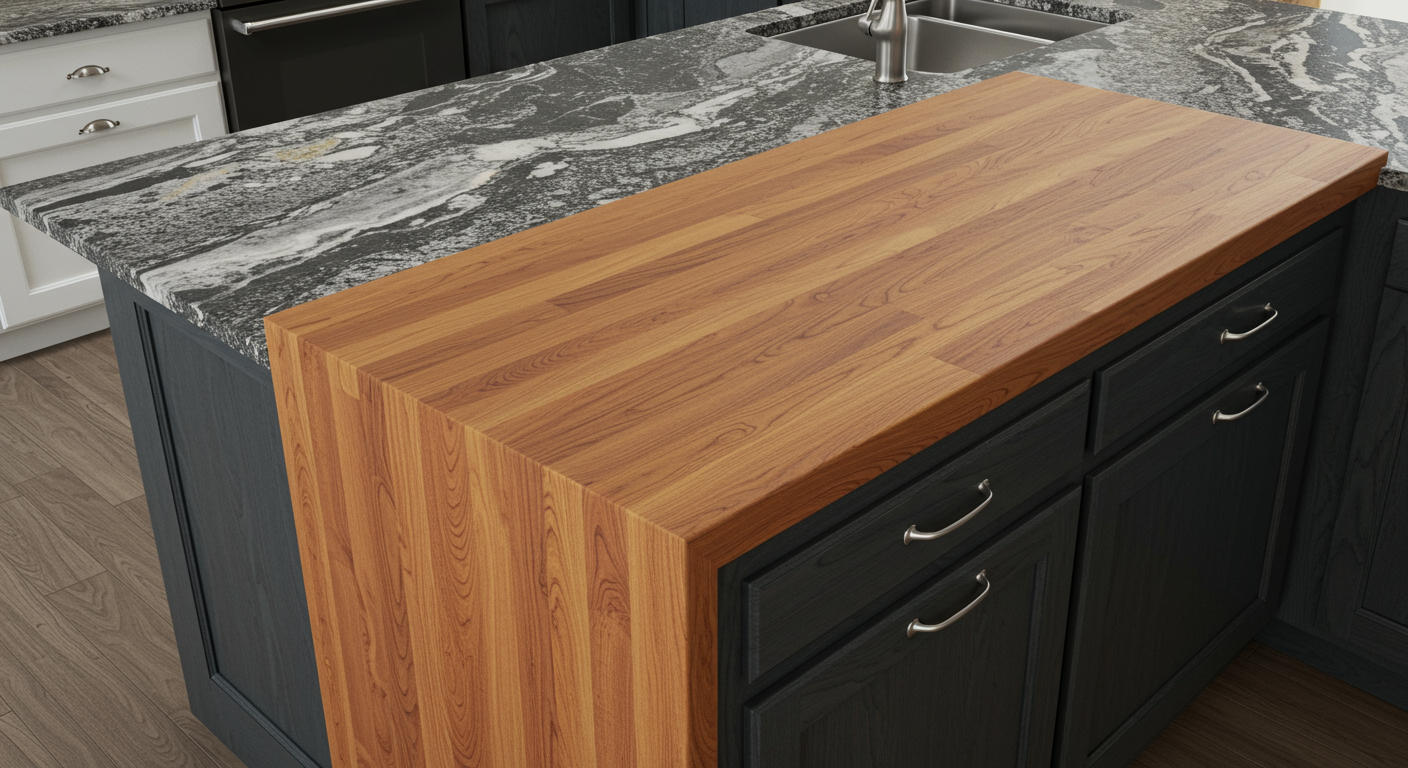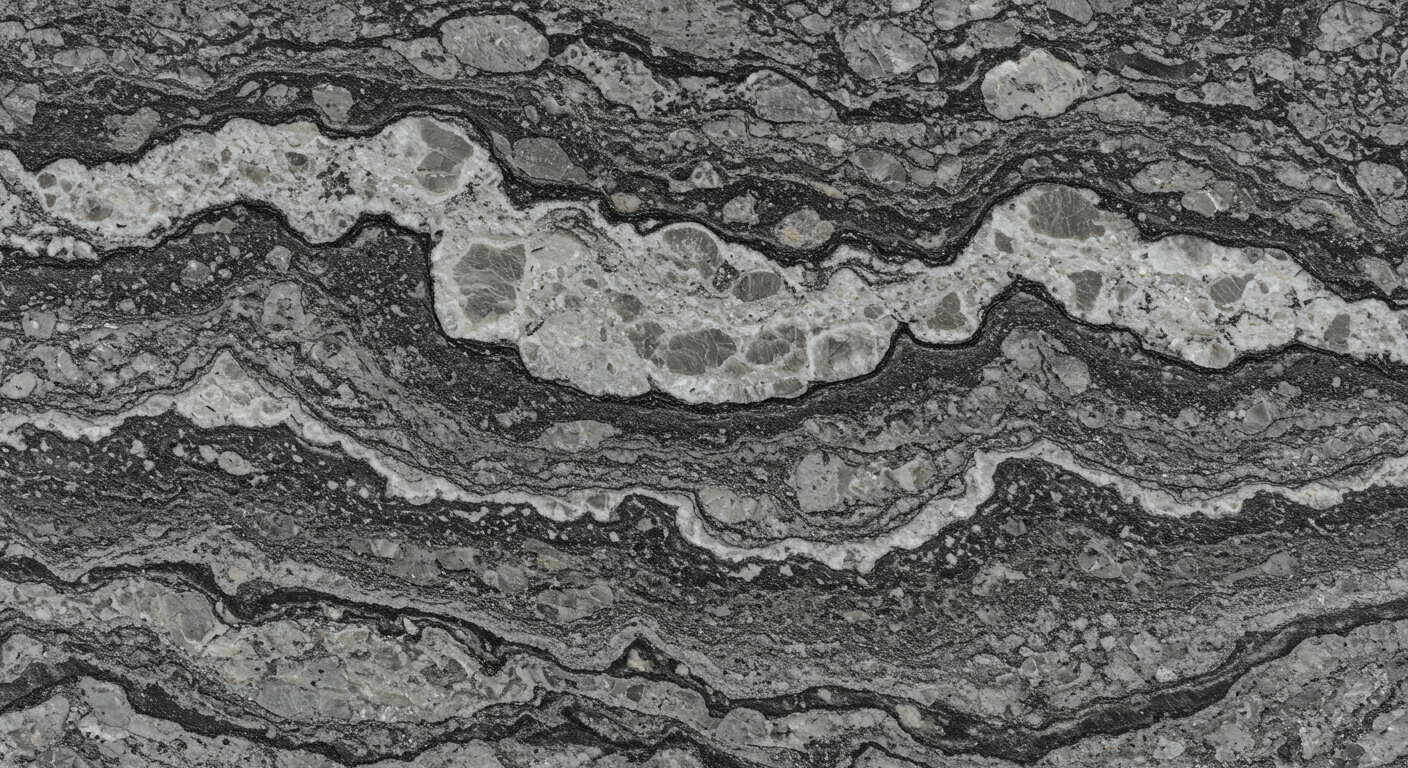
When you’re planning a kitchen remodel or swapping tired surfaces, few choices matter more than your countertop. There are endless kitchen countertop options out there, but two materials consistently top the shortlist: butcher block and granite. They couldn’t look or feel more different, yet both bring strong everyday performance to a busy kitchen, which is why the butcher block vs. granite debate comes up so often.
This countertop comparison takes a clear look at real‑world durability. We’ll walk through strengths, trade‑offs, maintenance, and overall countertop longevity so you can decide which surface fits your home, habits, and budget—and stands up to your kind of use.
Understanding Butcher Block Countertops

Butcher block countertops are built from glued strips or end‑grain wood, which gives them a warm, tactile look you can’t fake. They age with you, picking up a subtle patina over time. The question for most homeowners is simple: in a countertop durability test, do they hold up?
Butcher Block Pros and Cons
Pros: Naturally warm and inviting, can be sanded and refinished to erase many butcher block scratches and dings, DIY‑friendly to install, and adds character and resale appeal.
Cons: Needs regular butcher block sealing and ongoing care, vulnerable to water if neglected (especially around sinks), can scorch under direct heat, and prone to stains if spills sit.
Butcher Block Durability and Lifespan
With consistent butcher block maintenance, durability is better than many expect. A well‑cared‑for wood countertop can run for decades, with a butcher block lifespan of 20+ years very achievable. Unlike many durable countertops, you can renew the surface through sanding, which is a big advantage when life happens.
Butcher Block Maintenance and Care
This is a hands‑on countertop. Plan to oil or seal every few months (more often in dry climates or high‑use kitchens) to guard against moisture and stains. Small butcher block scratches can be buffed or lightly sanded. Wipe spills quickly—especially wine, coffee, and beet juice—to avoid deep stains. Food‑safe mineral oil or a hard‑wax oil are common choices; avoid cooking oils that can go rancid.
Butcher Block Cost
As a rule, butcher block cost is lower than many stones, which makes it appealing for a budget‑savvy countertop upgrade. Pricing varies by species (maple, oak, walnut), thickness, and construction (edge‑grain vs. end‑grain), but it’s often one of the most cost‑effective kitchen countertop options.
Exploring Granite Countertops

Granite countertops are cut from natural stone and finished to highlight one‑of‑a‑kind patterns. They’re known for strength, heat tolerance, and that “this kitchen is done” look. The durability question isn’t whether granite is tough—it’s how it behaves in daily use as a primary countertop.
Granite Pros and Cons
Pros: Excellent heat resistance, high scratch resistance in normal use, boosts resale value, and offers a wide range of colors and finishes (polished, honed, leathered).
Cons: Heavy (requires sturdy cabinets), edges can chip if struck hard, needs periodic sealing, and it’s porous, so stains can occur if neglected.
Granite Durability and Lifespan
Granite durability is the benchmark. It shrugs off most wear and, with basic care, a granite lifespan can exceed 50 years. As long‑lasting countertops go, granite is a set‑it‑and‑forget‑it choice for many kitchens.
Granite Maintenance and Care
Compared to wood, granite maintenance is light. Most slabs benefit from sealing every 1–3 years, depending on the stone and sealer. Wipe acidic spills promptly, use mild cleaners, and avoid abrasive pads that can dull the finish or create fine scratches. Day to day, it’s an easy countertop to live with.
Granite Cost
Granite cost typically runs higher than butcher block due to the material, fabrication, and professional install. In a countertop cost comparison, many homeowners view the upfront spend as a trade for longevity, low upkeep, and the finished look it brings to a kitchen remodel.
Butcher Block vs Granite: The Durability Test - A Direct Comparison
Let's pit granite vs butcher block directly against each other in key durability categories:
Scratch Resistance
Granite is far harder and resists scratching from everyday use. Granite scratches are uncommon unless you use abrasives or drag something truly rough across it. Butcher block scratches show sooner, especially if you cut directly on the surface—but they’re easy to erase with sanding and refinishing.
Heat Resistance
Granite wins. It’s among the most heat‑resistant countertops and tolerates hot pots and pans better than most materials. Butcher block can scorch or darken under heat, so trivets and hot pads are a must to protect the countertop.
Stain Resistance
Both materials are porous and rely on sealing. A regularly sealed butcher block resists many spills, but pigments and oils can still leave stains if they sit. Properly sealed granite is highly stain‑resistant, yet acids and oils left for a long time can mark some stones. Routine sealing keeps performance high.
Maintenance and Care
Butcher block needs frequent, simple care—oiling, quick wipe‑ups, and occasional sanding to refresh. Granite needs periodic sealing and basic cleaning. Both countertops benefit from prompt spill cleanup; the difference is how often you’ll do proactive maintenance.
Longevity
Both qualify as long‑lasting countertops, just in different ways. Granite tends to look unchanged for years with minimal attention. Butcher block will show use sooner, but its renewability means you can restore the countertop rather than replace it, extending butcher block lifespan significantly.
Choosing Your Ideal Countertop
Your best countertop comes down to how you cook and how much care you want to give. If you want a naturally hard, heat‑resistant, low‑maintenance surface with a refined feel, granite is a strong bet for countertop longevity and everyday ease. It’s an investment that often pays you back in durability and value.
If you love the warmth of wood, like the idea of a living surface you can refinish, and don’t mind routine butcher block care, butcher block kitchen countertops deliver a welcoming, workhorse countertop with tons of character. Both choices are durable countertops in real kitchens. Match the material to your habits, your aesthetic, and the maintenance you’ll realistically do—and your new kitchen countertop will look good and work hard for years, whether it’s a countertop replacement or a ground‑up renovation.


